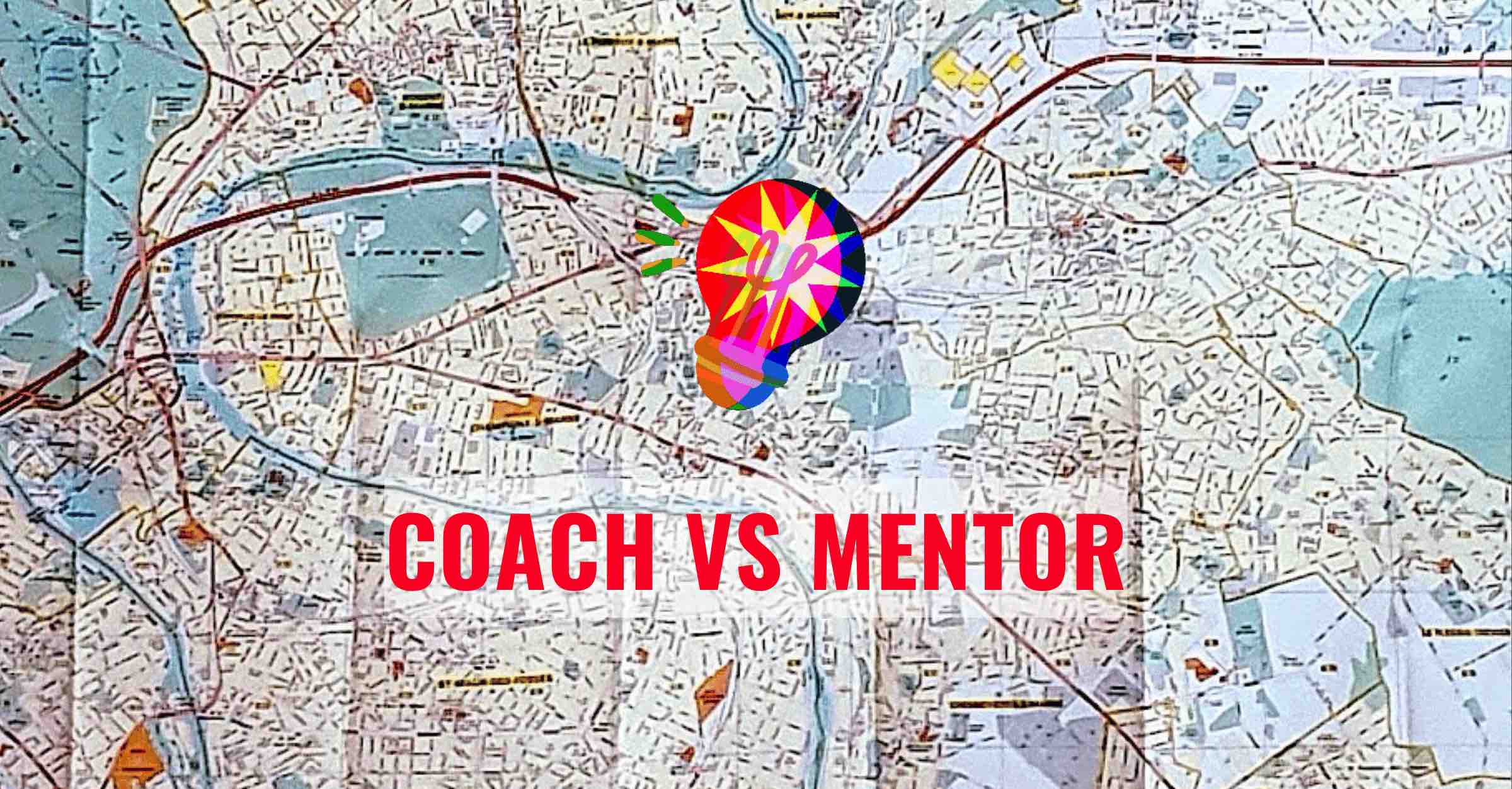In boardrooms and offices across blue-chip companies, coaching has already established its presence, recognized for its ability to ignite transformative change. From middle management to the CEO and other C-Level executives, core team members have reaped the rewards of coaching, propelling their organizations to new heights. These corporate giants astutely recognised the immense value that coaching brings in boosting their organisations’ success and enhancing the well-being and performance of their people.
However, in the startup world, coaching has remained somewhat in the shadows. Mentoring took centre stage, capturing the attention of accelerators and venture capitalists. Though coaching is gaining ground, investors still see mentoring as a safety net for supporting their startup investments by passing the wisdom of people who’ve succeeded before. Surprisingly, limited research focused on the specific benefits that coaching and mentoring could offer to startup founders.
My aim here is to bring clarity to the distinct roles played by mentors and coaches, highlighting why every startup founder should consider embracing coaching. We delve into the tapestry of entrepreneurial support, unravelling the distinct contributions of coaching and mentorship, and unearthing their hidden synergies.
Coaching revolves around the notion of gaining clarity of vision, achieving goals more efficiently, and maintaining alignment with core values. Let’s dive and uncover if having a coach in your corner can unlock the key to your startup success.
Coaching vs Mentorship: the Yin and Yang of entrepreneurial support
In the realm of startup support, mentorship and coaching play distinct yet complementary roles. Mentorship involves the guidance and support provided by experienced professionals who have traversed the entrepreneurial path before. These mentors share their industry-specific knowledge, offer advice based on their own experiences, and provide valuable connections. On the other hand, coaching takes a different approach. Coaches focus on personal growth, helping entrepreneurs clarify their vision, set meaningful goals, and develop the mindset necessary for success. While mentors typically have direct industry experience, coaches bring diverse backgrounds and expertise, often specialising in empowering individuals. The unique strengths of mentorship and coaching combine to create a powerful support system for startup founders.
The added value of coaching
Coaching brings significant added value to the entrepreneurial journey in several key aspects. Coaches excel in fostering personal growth and mindset development. They guide entrepreneurs in self-reflection, emotional intelligence, and resilience, helping them unlock their full potential. Coaches empower founders to overcome self-limiting beliefs, cultivate a success-oriented mindset, and thrive in the face of challenges. Coaches also play a vital role in accountability and goal-setting. They assist founders in defining clear objectives, creating actionable plans, and staying on track. Through regular check-ins and support, coaches ensure that entrepreneurs remain focused, motivated, and make consistent progress towards their goals. Additionally, coaches empower entrepreneurs and their teams to find their own solutions. Instead of providing answers, they ask thought-provoking questions, foster critical thinking, and encourage individuals to tap into their creativity and problem-solving abilities. This approach enables entrepreneurs to develop their own strategies, take ownership of their decisions, and cultivate a sense of autonomy within their ventures.
Another key advantage of a coach over a mentor is that their approach is not influenced by what has worked before, leaving you more space for creativity and innovation. This is especially true when venturing into blue ocean territory. Coaches push the limits of your vision and facilitate true transformation within yourself and the industry you operate in.
Famous entrepreneurs who had a coach
Ten years ago, at a TED talk, Bill Gates famously began his speech with these words: “Everyone needs a coach.” It’s safe to say that most celebrated entrepreneurs have hired coaches to work on various aspects of their personal development and business goals. Interestingly, the majority of renowned coaches are American, and it doesn’t take much to notice the correlation between the widespread use of coaching and the incredible success of entrepreneurs in the US. The tech world, in particular, is filled with coaching success stories.
Bill Gates worked with executive coaches who helped him enhance his emotional intelligence, communication skills, and decision-making process. Steve Jobs was not known to have formal mentors, but he turned to executive coaches at various points in his career to help him become a more effective leader and communicator. Coaching enabled Jobs to develop his presentation skills, learn to delegate more effectively and manage his demanding personality. These coaching experiences played a significant role in shaping Apple’s success and solidifying Jobs’ legacy as a revolutionary entrepreneur.
As an illustration, let’s look at some of the most famous coaching clients through the lens of three of the most well-known coaches: Bill Campbell, Tony Robbins, and Marshall Goldsmith, who between them have coached a wide range of CEOs of Fortune 500 and unicorns, as well as personalities and political figures.
Bill Campbell, who started as a football coach in the 70s, is one of the fathers of coaching. He has coached among many others Steve Jobs, Larry Page, Sergey Brin, Eric Schmidt, Jeff Bezos, Sheryl Sandberg (Facebook).
Marshall Goldsmith, whom startup guru Guy Kawasaki called “the most famous executive coach in the world”, coached some of the highest-profile CEOs including: Alan Mulally (Ford), Frances Hesselbein (Girl Scouts of the USA), Howard Schultz (Starbucks), Daniel Vasella (Novartis), Phil Knight (Nike), Jack Welch (General Electric), Andrea Jung (Avon Products), Vikram Pandit (Citigroup).
The third musketeer of our star coach trio is Tony Robbins, probably the first name that springs to mind when it comes to personal development and coaching. His company, Robbins Research International, offers a variety of coaching programs and seminars, and Tony himself has coached since the 80s a variety of celebrities, from Hollywood stars to political figures and business leaders, including Bill Clinton, Serena Williams, Hugh Jackman, Andre Agassi, Leonardo DiCaprio, Oprah Winfrey, Steve Wynn.
By now, you’re probably thinking: “These guys must be onto something.” On the other hand, there may be a question lingering in the back of your mind: “What about those legendary entrepreneurs who reached the pinnacle of success without a coach?”. Well, intriguing at least. So, it’s time for me to ask you a question: What famous entrepreneurs have never had a coach?
Finding your perfect coach
Now, you might be intrigued and eager to explore what coaching can do for you and your venture. This is an exciting prospect, but there is one last hurdle to overcome: finding the right coach for you. As it turns out, this can be the most challenging part of your coaching journey. Choosing a coach is a bit like finding a trusted confidant who will support you on your path of growth and success. To help you embark on your coaching adventure and follow in the footsteps of our “great predecessors,” as Kasparov would put it, let’s delve into the key factors to consider when selecting the perfect coaching match for you.
What do you want to work on?
First things first, think about what you want to work on. Whether it’s becoming a more inspiring leader, navigating the choppy waters of your startup, finding better work-life balance, or having clarity on your goals. That will help you select the right coach.
Credentials count
Look for coaches with the right credentials. Check if they’re certified by reliable organizations like ICF, so you know they walk the talk and follow ethical coaching practices.
The “vibe” check
Finding a coach who clicks with your personality is like finding the missing piece to your puzzle. Look for someone who listens actively and gets where you’re coming from.
Experience matters
When it comes to coaching an entrepreneur, the coach’s experience matters, and without stepping into mentoring, it’s important that your coach has a business track record of his own so he can relate to the challenges of an entrepreneur. You wouldn’t take a tennis coach who can’t hold a racket. They don’t have to be a champion, but they need to understand the intricacies of the game.
Get chatty
Don’t be afraid to hop on a free consultation call with potential coaches. It’s like a coffee chat to see if you vibe together and if they truly understand your goals.
Ask for recommendations
Ask friends, colleagues, or anyone you trust for their coaching recommendations. Their insights might lead you to your perfect match. A word of warning though, the right coach for your best friend may be the wrong coach for you. A coach is not like a dentist, perfect technique is not enough, chemistry is vital.
Trust your intuition
Finally, go with your gut feeling. The right coach will make you feel comfortable, inspired, and ready to tackle any challenge.
So, there you have it fellow startup founders! Finding the right coach might take a bit of searching, but when you do, you’ll be on your way to unlocking your full potential. Remember, your coach will be your secret weapon on this exciting journey of growth and self-discovery!
A final word on the secret sauce
So, while mentors have undoubtedly played a crucial role in the success of many entrepreneurs by offering tried-and-true advice and industry-specific knowledge, it is essential to recognise the impact of executive coaching on their growth and accomplishments as well. The examples mentioned above illustrate how combining coaching with mentoring can be a powerful tool for entrepreneurial success, and what we can learn from famous leaders who had a coach.
Whether it’s refining leadership skills with a personalized approach, honing communication abilities, focusing on individual strengths and aspirations or enhancing decision-making, the guidance of a skilled coach can complement the insights provided by mentors and ultimately pave the way for extraordinary achievements. Coaches bring a unique set of skills to the table, offering tailored support, feedback, and strategies to navigate obstacles and unlock untapped potential.
Coach-Mentor is the perfect power duo for entrepreneurs looking to elevate their performance, make a significant impact, and make meaningful strides toward success. I encourage all entrepreneurs to embrace this dynamic combination of mentorship and coaching. Experimenting with coaching opens new doors to self-awareness, motivation, and goal-oriented action. Through this powerful collaboration, entrepreneurs can seize opportunities for transformation and growth like never before. You can embark on this transformative journey with confidence and an open mind, knowing that this unique coach-entrepreneur partnership holds the potential to energise your entrepreneurial spirit and propel you to new heights.
Let me know your experience with mentors and coaches, or any questions you may have. What is your in your daily life and quest for wisdom.
Please share it in the LinkedIn comments section of this article

